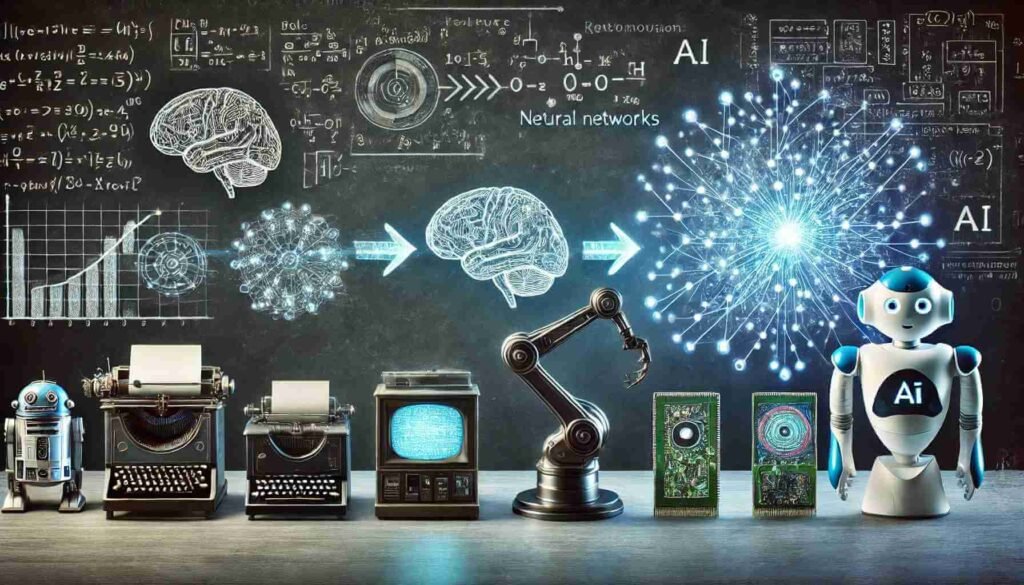
Quantum Computing Breakthroughs: What to Expect by 2025
Discover the latest in quantum computing, from its potential in cybersecurity and drug discovery to real-world applications expected by 2025.
Quantum computing is transforming industries and science with unprecedented computational capabilities, challenging traditional limitations. Unlike classical computers that process data as 0s or 1s, quantum computers use quantum bits, or qubits, which can exist in multiple states at once. This ability to leverage superposition allows quantum systems to perform calculations far beyond the reach of traditional computing. In this article, we explore significant breakthroughs in quantum computing and the impact this transformative technology is expected to make by 2025.
Table of Contents
Understanding Quantum Computing’s Core Principles
Quantum computing harnesses properties of quantum mechanics, such as superposition and entanglement, to process data in new ways. In simple terms, while traditional computers handle binary bits that represent either 0 or 1, qubits can represent both 0 and 1 at the same time, thanks to superposition. Additionally, entanglement enables qubits to remain interconnected, even when separated, allowing for faster data processing.
These unique attributes make quantum computing advancements suitable for tackling problems that are complex and data-intensive. Industries and researchers are exploring its applications, from scientific modeling to secure data encryption. As these efforts progress, breakthroughs in both quantum hardware and software are bringing the technology closer to mainstream use.


Recent Quantum Hardware Developments
Enhancing Quantum Stability
Developing stable quantum hardware is critical for making quantum computers viable. Qubits are extremely sensitive to environmental factors and are prone to errors, which makes stability a major challenge. Quantum systems often require ultra-low temperatures to preserve the coherence of qubits and reduce errors. Advanced cooling solutions, like dilution refrigerators, help maintain these necessary conditions, keeping quantum systems stable enough to perform calculations accurately.
Error Correction Techniques
Quantum error correction is essential for long and complex computations. Unlike conventional computers, where error correction is straightforward, the fragile nature of qubits makes error correction particularly challenging. Techniques like surface codes and stabilizer codes have been developed to improve error handling, marking a significant step toward achieving reliable quantum computations. With enhanced stability, quantum computers can potentially handle larger, more complex datasets, moving closer to real-world applications.
Quantum Computing in Data Security and Cryptography
One of the most impactful areas for quantum computing is cybersecurity. Current encryption protocols, like RSA, rely on the computational difficulty of factoring large numbers—something that quantum computers could potentially solve rapidly. If widely available, quantum computers could break classical encryption, posing a risk to data security across sectors.
To address these concerns, researchers are working on post-quantum cryptography, a form of encryption designed to be resilient to quantum attacks. Another promising advancement is quantum key distribution (QKD), which provides an ultra-secure way to share encryption keys. In QKD, any attempt to intercept the communication changes the quantum state, alerting the involved parties of a breach attempt. With continued development, quantum cryptography could become a standard in high-security sectors, including finance and defense.
Transforming Drug Discovery and Medical Research
Quantum computing has the potential to revolutionize drug discovery, an area where accurate molecular simulations are critical. Drug development is often a lengthy process, taking years and billions of dollars from initial research to approval. Quantum simulations can model molecular interactions in greater detail, allowing researchers to analyze how compounds will interact with biological targets before testing in laboratories.
This technology could shorten drug development timelines by helping scientists predict which compounds are most promising. Quantum computers can also be used to process and analyze genetic data, paving the way for personalized medicine. By 2025, we might see quantum-assisted drug discovery yielding new treatments for diseases that currently lack effective therapies, such as certain cancers and neurological conditions.

Quantum Optimization in Manufacturing and Supply Chain
Quantum computing has a profound impact on optimization, particularly in industries where complex logistical and manufacturing problems exist. Classical computers struggle with optimization when there are multiple variables, but quantum systems can handle vast datasets simultaneously. This capability makes quantum computing breakthroughs valuable for improving efficiency in manufacturing and logistics.
For instance, in logistics, quantum algorithms could identify the most efficient delivery routes, reducing fuel costs and delivery times. In manufacturing, companies can use quantum computing to optimize production schedules, allocate resources effectively, and minimize waste. By leveraging these capabilities, quantum technology could help companies save costs and improve productivity in increasingly competitive markets.
Addressing the Challenges of Scaling Quantum Systems
Quantum computing faces significant challenges, particularly around scalability and operational stability. Quantum systems are highly sensitive, and as the number of qubits grows, so do the complexities. Each additional qubit increases the system’s potential but also makes it more susceptible to errors. Ensuring stability while adding qubits requires sophisticated error correction methods and precise environmental control.
Efforts are underway to make quantum computing more accessible. Governments and private enterprises are investing in research to advance quantum error correction, cooling systems, and overall qubit control. Another area of focus is reducing the high costs associated with quantum infrastructure, which requires specialized environments to keep qubits stable. Addressing these challenges will be essential to achieving scalable quantum computing systems that can be widely used across industries.
The Road Ahead: Quantum Computing in 2025
As we look toward 2025, several key developments in quantum computing advancements are expected to materialize:
- Greater Stability and Reliability: Enhanced qubit stability and error-correction techniques will make quantum systems more reliable. These improvements will allow quantum computers to handle increasingly complex computations, making them applicable to a broader range of industries.
- Widespread Adoption of Quantum-Safe Encryption: As quantum technology matures, quantum-resistant encryption will become standard in industries that handle sensitive data. Expect to see post-quantum cryptography and quantum key distribution integrated into government and corporate security frameworks.
- Quantum-Powered Drug Discovery and Personalized Medicine: Quantum systems are set to play an essential role in drug development, accelerating the search for new treatments. Quantum computing will also contribute to personalized medicine by analyzing genetic data and identifying optimal therapies based on individual genetic profiles.
- Logistics and Manufacturing Optimization: Quantum computing is expected to revolutionize optimization within logistics and manufacturing, helping companies reduce waste and increase operational efficiency.

Conclusion
The potential of quantum computing is vast, offering solutions to problems that were once out of reach for traditional computers. As we move closer to 2025, quantum computing breakthroughs are poised to transform industries, from revolutionizing cybersecurity and enhancing drug discovery to streamlining logistics and manufacturing. Although challenges remain, ongoing advancements in quantum hardware, error correction, and algorithms are paving the way for a future where quantum computing is an integral part of our technological landscape. The journey of quantum technology is only beginning, and its future impact is something we are only starting to understand.



